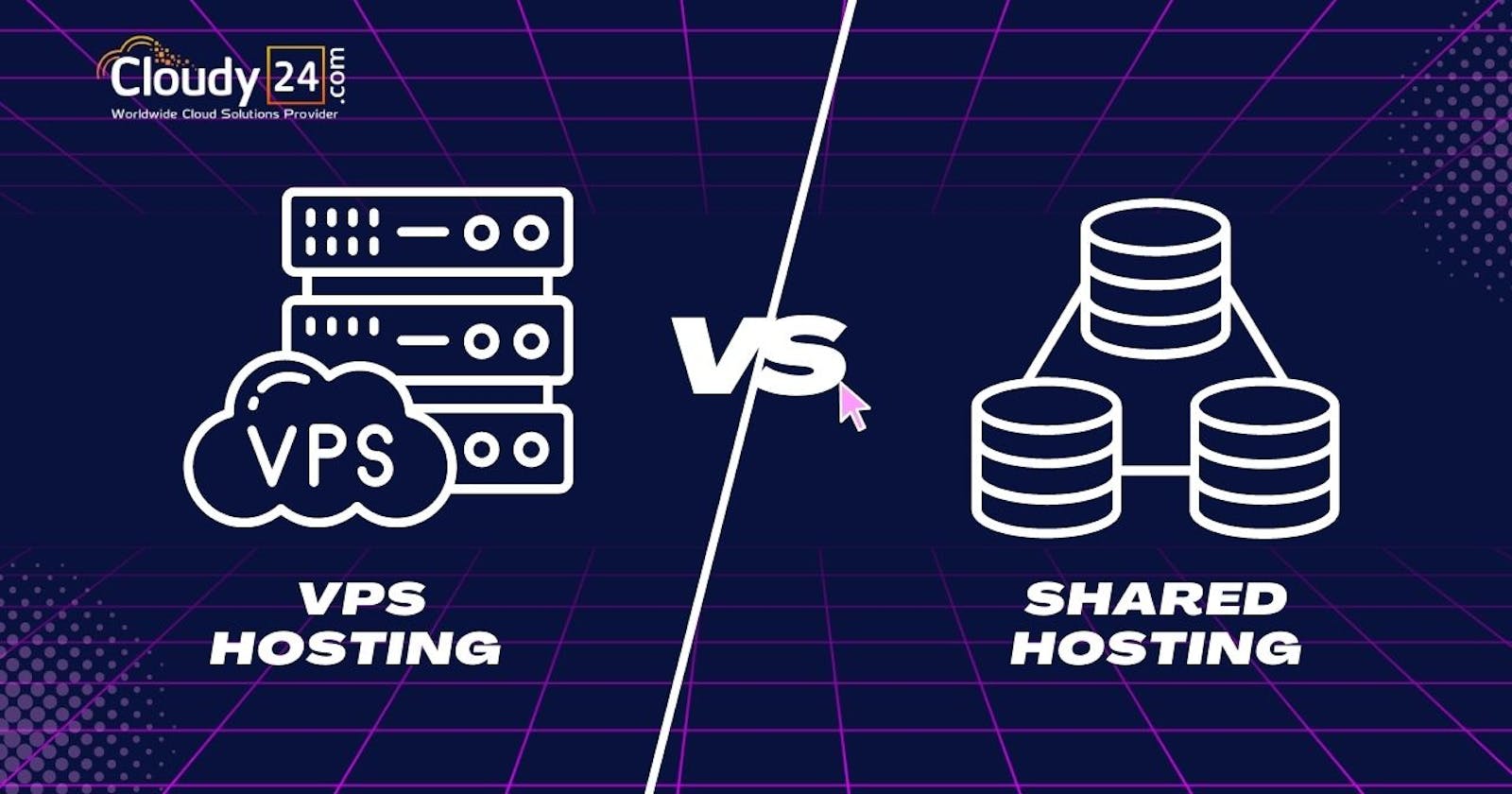VPS Hosting vs. Shared Hosting: Choosing the Best
"VPS vs. Shared Hosting: Uncovering the Ideal Solution for Your Website's Performance and Budget"
Introduction: You have a variety of alternatives when it comes to hosting your website. VPS hosting and shared hosting are two prominent options. It's critical to comprehend how each alternative differs from the others because each offers advantages and factors to consider. To assist you in making an informed choice for the hosting requirements of your website, we'll examine the features, advantages, and use cases of shared hosting and VPS hosting in this blog post.
Understanding VPS Hosting: A virtualized environment with dedicated resources is provided within a shared server infrastructure via virtual private server (VPS) web hosting. Many virtual servers are established in VPS hosting on a single physical server. Each virtual server functions independently and has its own dedicated resources, such as CPU, RAM, and storage. This isolation provides enhanced performance and security compared to shared hosting.
Investigating shared hosting: As the name implies, shared hosting entails sharing the resources of a physical server with numerous websites hosted on it. In this configuration, the websites hosted on that server share resources including CPU, RAM, and storage. Since the cost is split among several customers, shared hosting is frequently more economical than VPS hosting.
Performance and Scalability: When compared to shared hosting, VPS hosting delivers superior performance. With dedicated resources, other websites on the server have no impact on the performance of your website. Furthermore, VPS hosting enables simple resource scaling, allowing you to upgrade or downgrade as your website's requirements change.
Security considerations: Compared to shared hosting, a virtual private server (VPS) offers higher security. The separation of virtual servers in VPS hosting reduces the possibility that vulnerabilities on one website could affect others. If one website on a shared server suffers a security breach, it may also affect other websites there.
Customization and Control: Compared to shared hosting, VPS hosting provides more possibilities for customization and more control over server settings. With VPS hosting, you can install and customize software and apps to meet your needs because you have root access to your virtual server. Due to the shared nature of the environment, customization choices are constrained in shared hosting.
Cost Factors: Since shared hosting uses shared server resources, it is typically less expensive than VPS hosting. Shared hosting can be affordable if you have a small website with moderate traffic and financial restrictions. VPS hosting could be a better option while being more expensive if your website needs specialized resources, better speed, or particular program installations.
Conclusion: Both shared hosting and VPS hosting offer advantages and things to remember. Small websites with tight budgets should choose shared hosting, but VPS hosting offers greater speed, increased security, and more customization choices. To make an informed choice, consider your website's budget, traffic projections, and unique requirements. Remember that picking the appropriate hosting option is essential. for the success of your online presence.


